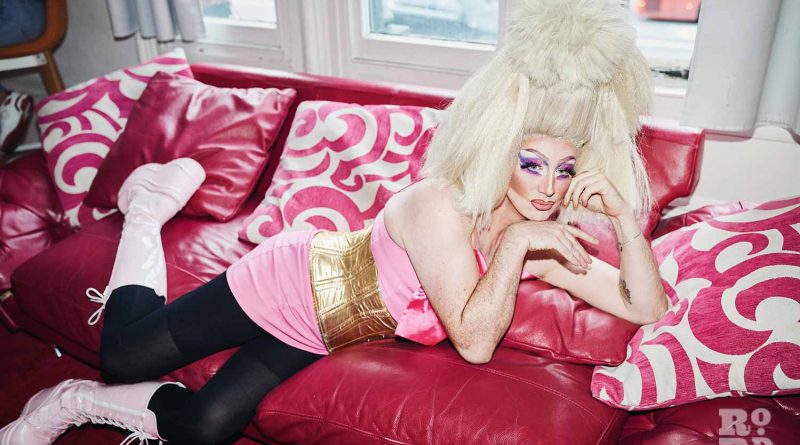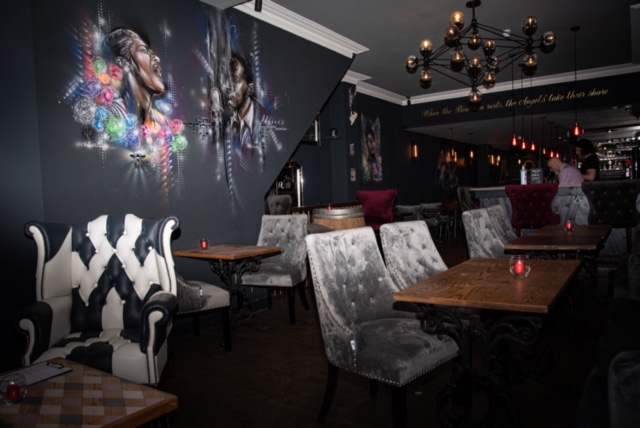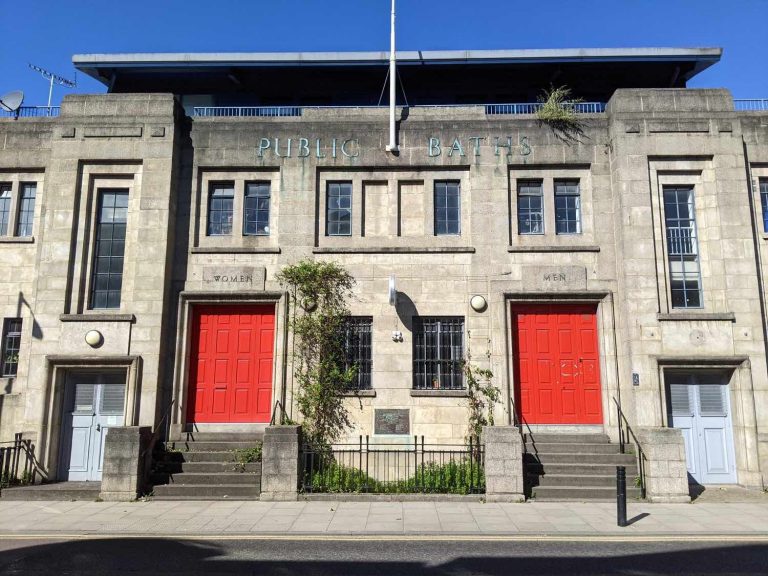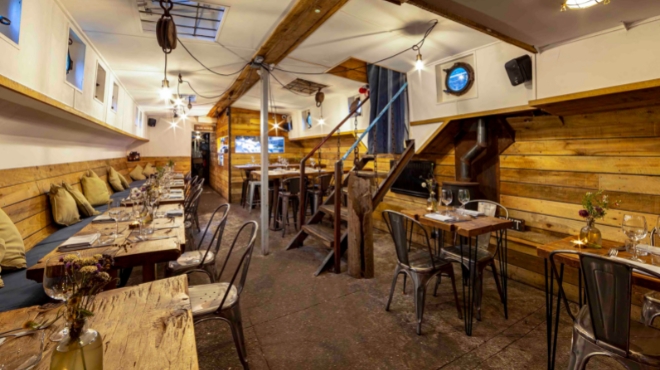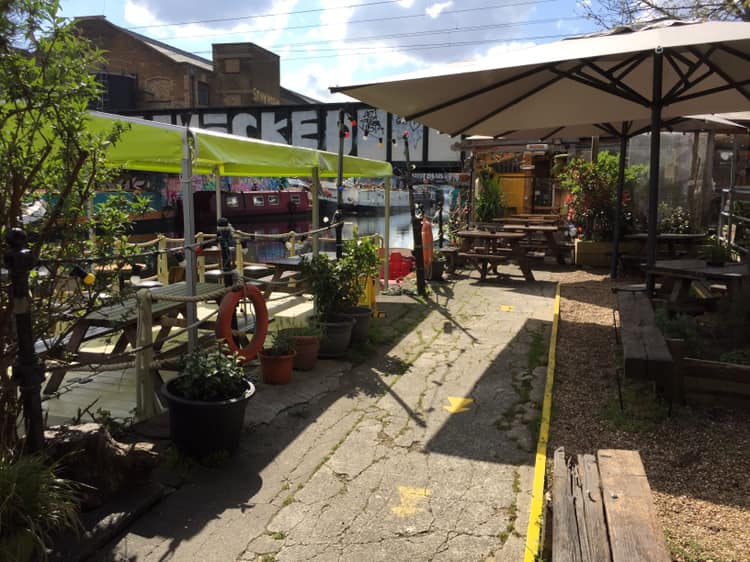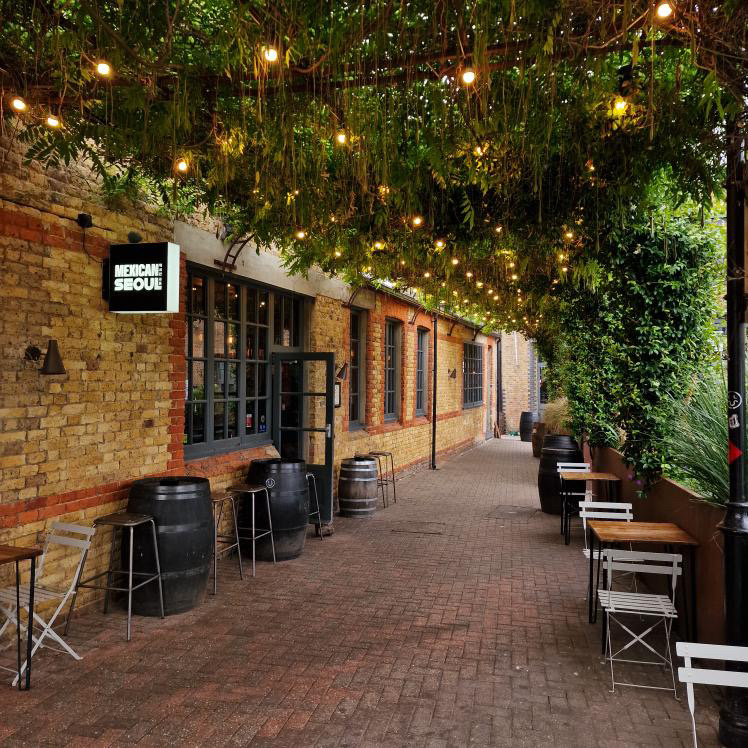The drag kings and queens redefining the queer scene in Tower Hamlets
From glittering karaoke in Cockney boozers to confrontational political satire at community hubs, drag kings and queens are spearheading a revival in queer performance across the East End.
It’s 10 pm in the Bow Bells on a Friday, and a shirtless 34-year-old known by regulars affectionately as ‘Sparkles’ has removed his shirt for the second time that evening. He’s singing his heart out to Robbie Williams’ Angels atop a table strewn with emptied Guinness glasses in a state of positive ecstasy.
It’s karaoke night at the pub, hosted by Brick Lane-based drag queen Christina Draguilera, who’s become a household name in Bow for those clued in on the local scene. The boozer is rammed with punters from all walks of life, from pensioners and queer students to the local football team, all gathered for a few hours of slightly unhinged revelry.
Savage and sexy in equal measure, Christina is the night’s hostess and DJ, garbed in a hot-pink mini-dress, impossibly high platform boots and a deliciously dramatic platinum-blonde wig. She’s the audacious drag persona of Scott Cheek, 49, who’s pioneering a drag renaissance, returning the scene to where it once thrived: the traditional Cockney boozer.
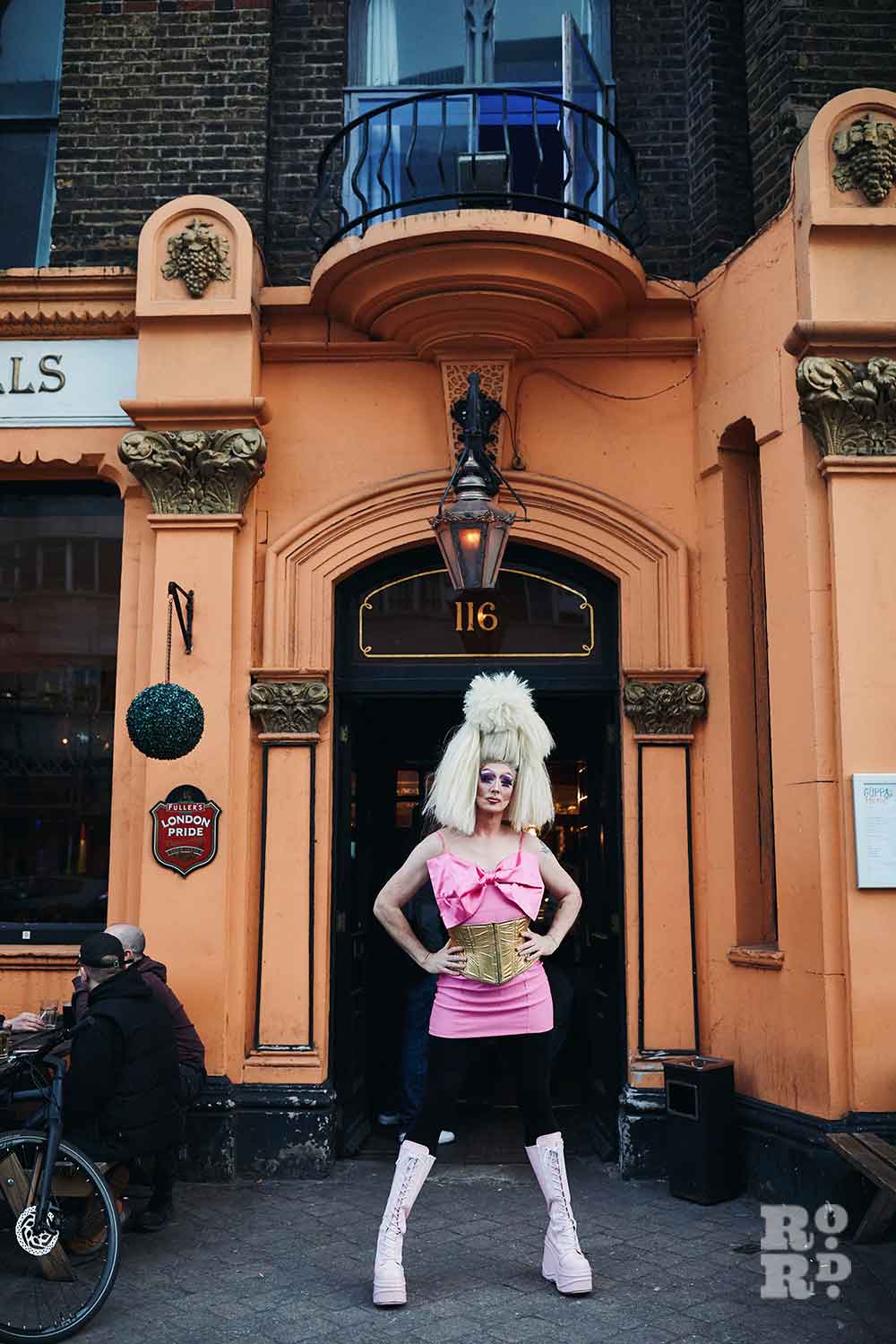
‘Back in the East End in the 60s, 70s, 80s, there was a huge drag scene, there were drag queens like Dockyard Doris who were so famous in this area and Hackney and Limehouse, and it just faded away, but I feel like I’m bringing it back,’ says Cheek, who discovered drag four years ago and hasn’t looked back since.
The East End has a rich history of drag, dating back to 18th century ‘Molly Houses’, the taverns and coffee houses where homosexual men and gender-nonconforming people gathered to socialise, have sex and freely express themselves.
We have bald East End men who love football, but they accept all the LGBTQ+ people working behind the bar. It’s a misunderstanding that the East End is intolerant.
dean beard
From the Victorian era, the East End, written off as a debaucherous playground of working-class criminality, became the epicentre of a thriving queer scene. In the mid-20th century, pubs like The Royal Oak and The Bird Cage on Columbia Road and The Knave of Clubs on Bethnal Green Road were pillars of the gay community, hosting cockneys and queens seven days a week.
The Old Ship in Limehouse, a pub that’s been around for over 130 years, has retained its reputation as a hub of drag performance, but elsewhere the tradition has disappeared. For Adrian Garcia, the duty manager at the Angel and Crown pub, the culture shifted with the HIV/AIDS epidemic of the 1980s.
‘In the 60s, 70s, and 80s, drag was happening in non-gay venues, and the East End loved it because it’s always been welcoming, being near the docks and because of immigration there are so many different kinds of people,’ he says. ‘But the mid to late 80s saw a massive rejection of queer culture. A lot of cabarets ended up disappearing, along with soul music and jazz, and anything that was in any way gay or black ended up going because it was advertised as the “gay and black disease”.’
In 2009, the TV series RuPaul’s Drag Race catapulted drag back into the mainstream, and karaoke-singing queens started re-appearing in our boozers, livening up our evenings with their campy antics.
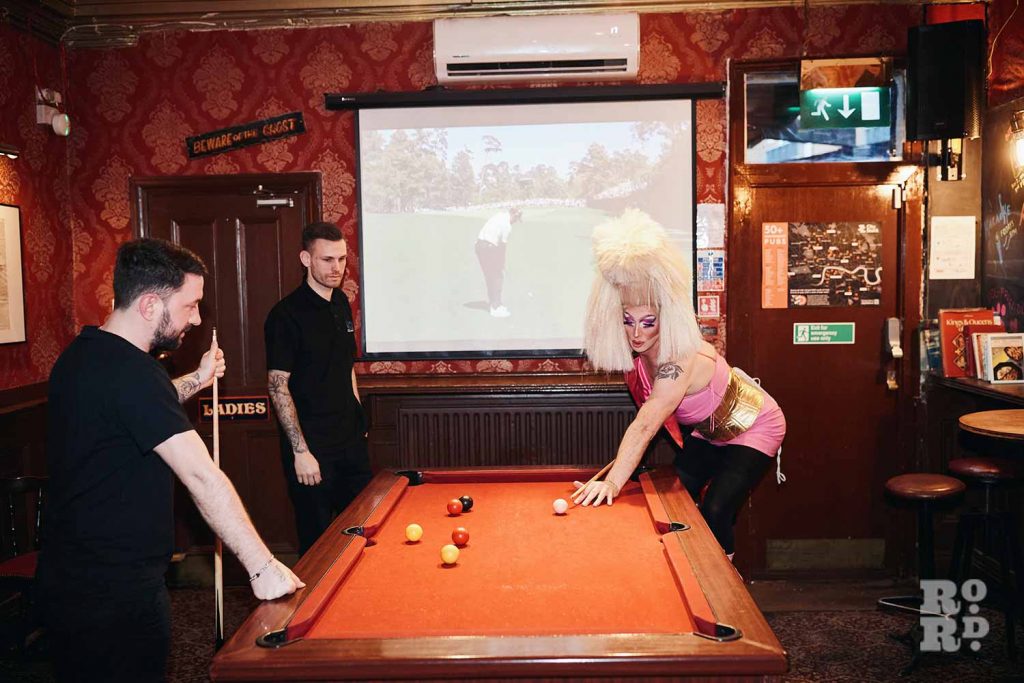
Raising spirits as Christina Draguilera, Cheek is at the forefront of the scene in Bow, hosting weekly quizzes and karaoke nights at the Bow Bells, Angel and Crown and Jungle Electric. He doesn’t restrict himself to performing in queer spaces and revels in the juxtaposition found at traditional pubs, where 60-year-old geezers share the bar with Gen-Z partiers. ‘Bow Bells is so inclusive, we don’t care what’s between your legs, we don’t care who you’re going to bed with, what colour your skin is, what size you are, what age you are. Just don’t be a c*nt, that is the only rule,’ he says.
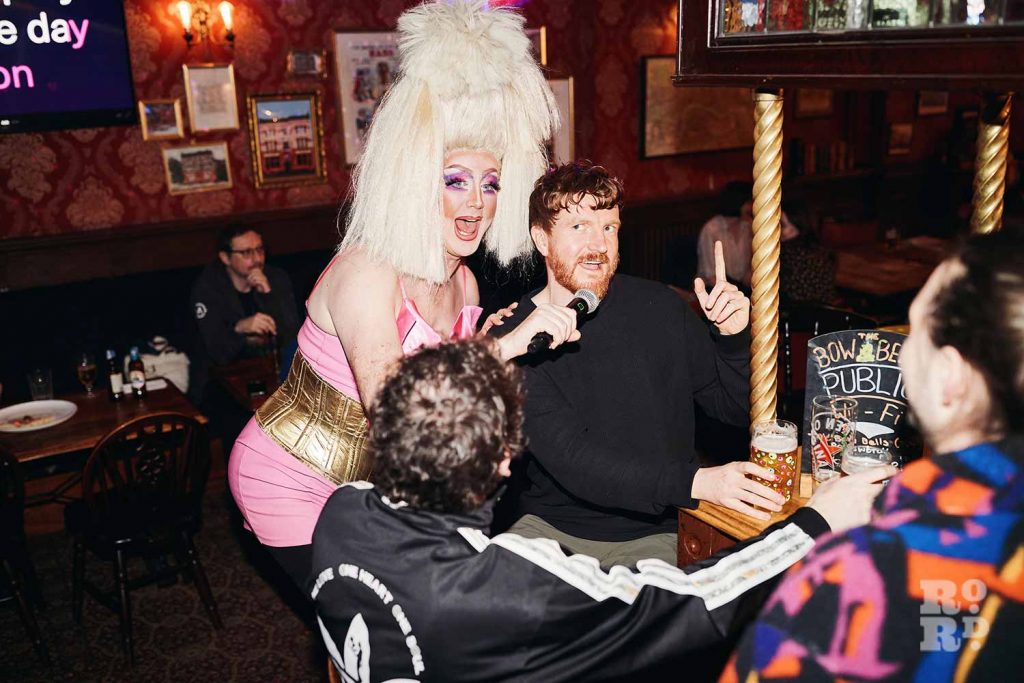
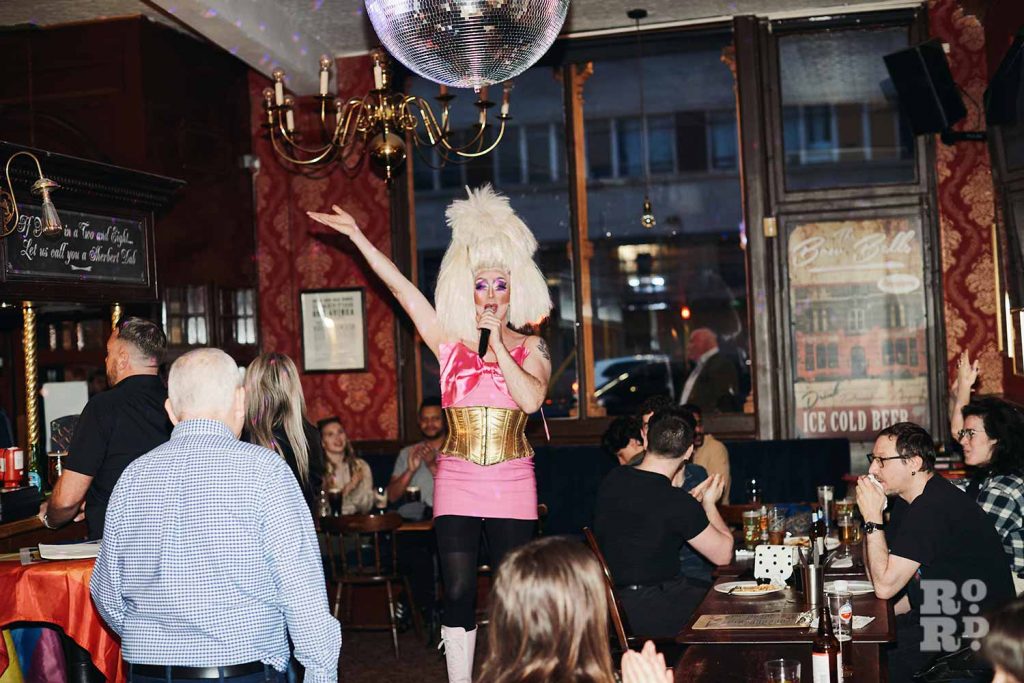
When Dean Beard, 31, took over the Bow Bells after the Covid pandemic, he was eager to bring drag into the West Ham supporters pub, founded in the 1860s. He said: ‘The East End has a history of diverse groups coming in. For generations, it’s been so tolerant and open-minded. The Kray Twins that used to run it, one of them was openly gay,’ he says, referring to Ronnie Kray, the notorious gangster.
The Bow Bells is a traditional boozer, and Beard wants to keep its ‘look and feel’, but adding a drag queen has gone down well. ‘We have bald East End men who love football, but they accept all the LGBTQ+ people working behind the bar, it’s a misunderstanding that the East End is intolerant,’ he says.
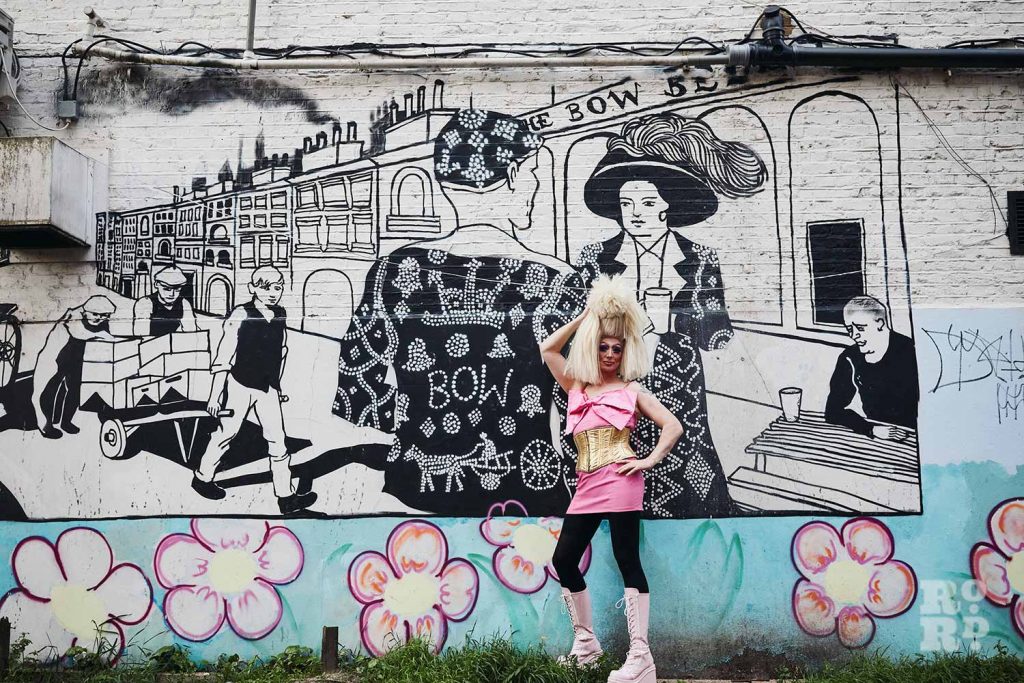
Forging a local queer community through drag is also the mission of Jungle Electric owners Christopher Tyerman and Alex Navarro. Before booking Christina, Shandy Half Pint was their resident queen, hosting bingo nights, gay speed dating and karaoke at the vegan cafe.
‘Shandy Half Pint used to walk down the street all made up, whereas a few years ago that wouldn’t have happened. It’s constantly evolving,’ Tyerman says, referring to the way queer people feel safe to express themselves without judgement in Bow. ‘People come here on the drag nights dressed in drag themselves, or if we do a film screening, people come dressed as characters from The Rocky Horror Picture Show.’
Like the LGBTQ+ community itself, the drag scene is not homogenous. While Christina’s bringing back old-school drag to Bow’s historic boozers, drag kings across east London are trailblazing a more alternative style of queer performance distinct from the mainstream queendom.
Shardeazy Afrodesiak is a 31-year-old drag king in London and part of the Pecs Drag King Collective. They’re currently organising Black is King, a drag event produced specifically for black and POC audiences. Shardeazy’s performances aren’t always light-hearted crowd-pleasers, but instead examine subjects like police brutality, civil rights, and the BLM protests of 2020.
For drag kings of colour like Shardeazy, seamless assimilation into typically heteronormative and white-dominated boozers isn’t just impossible, but also undesirable. ‘The more political and radical you are, the less palatable you are. What does well in the scene, and what gets you far, is palatable drag. So when a king is beginning their career, you have to choose a path. Do you dilute yourself?’
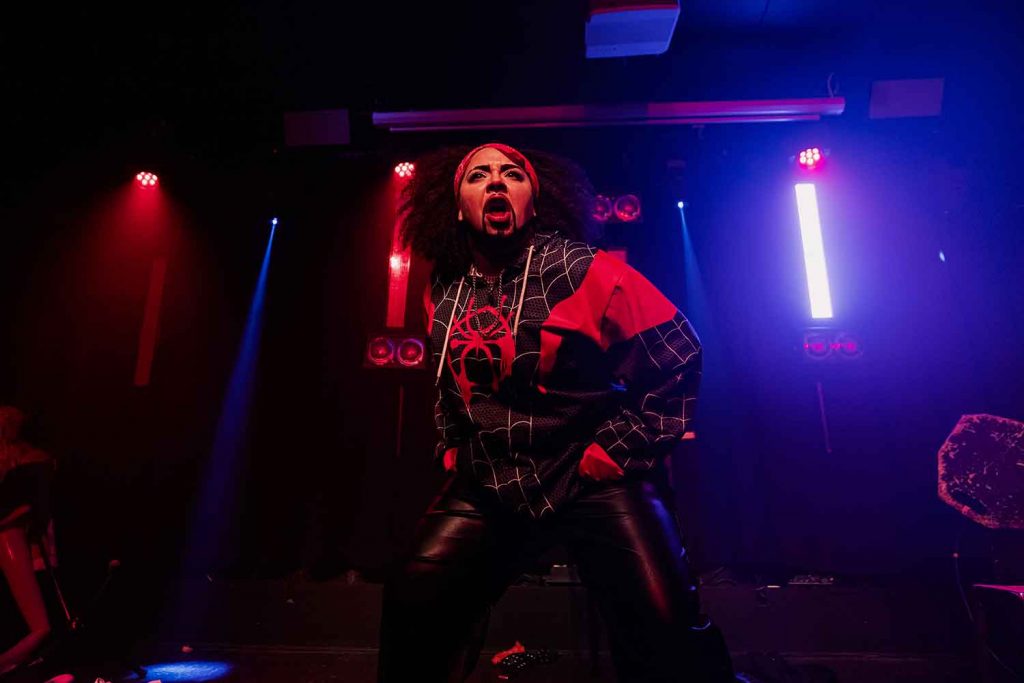
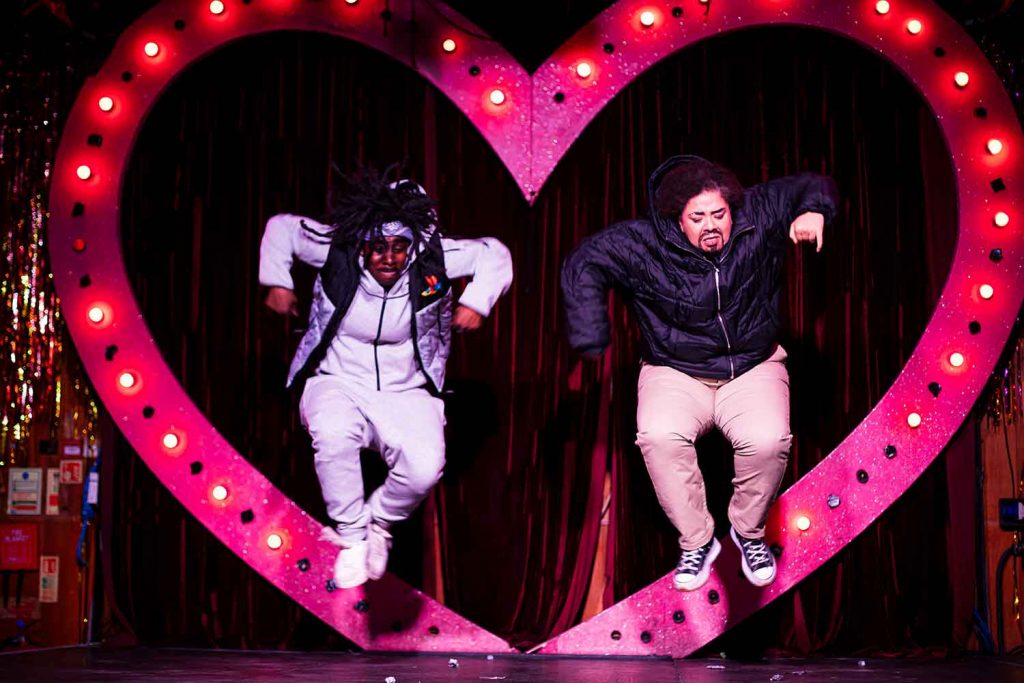
In the past, Shardeazy has featured in Lèse-Majesté, a drag cabaret show that’s changing the game when it comes to diversity in queer art. Hosted by Spanish drag king sensation Prinx Silver at Rich Mix on Bethnal Green Road, Lèse-Majesté showcases the diverse talents of underrepresented drag artists, especially disabled performers.
Lèse-Majesté spotlights lesser-celebrated ‘drag kings and things’ – the cisgender women, transgender men, and non-binary people who didn’t benefit from the exposure of RuPaul’s Drag Race, and are still battling for bigger and better-paid gigs.
‘From my experience, there’s definitely a much wider platform for mainstream drag, which is queens that adhere to a type of style,’ says Shardeazy. ‘The drag community is like any other community, it has ingrained misogyny and ingrained racism. It’s visible in the way we see who gets platformed.’
Drag queens might be re-entering our boozers, but there’s still a long way to go before the full spectrum of London’s queer artists feel at home, safe and celebrated in our community. However, if there’s any place we can count on to embrace the new generation of trailblazing performers, it’ll surely be our East End.
If you enjoyed this article, read our piece about The Backstreet in Mile End: London’s last men-only leather gay bar

